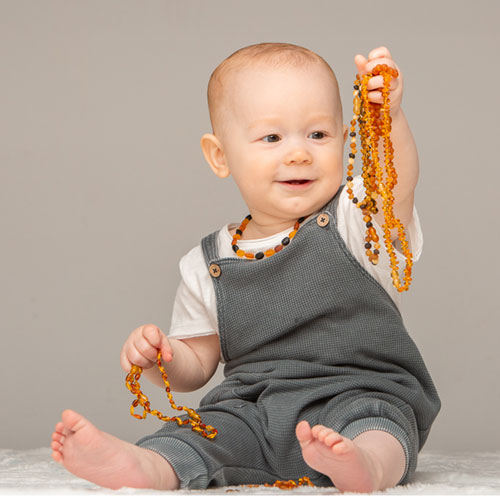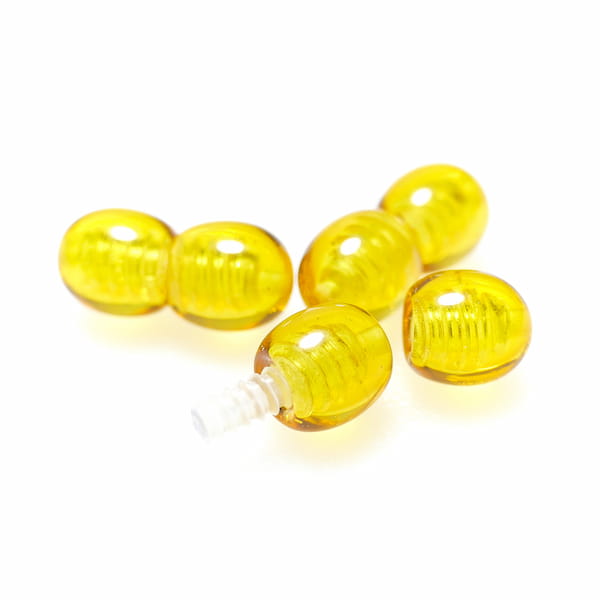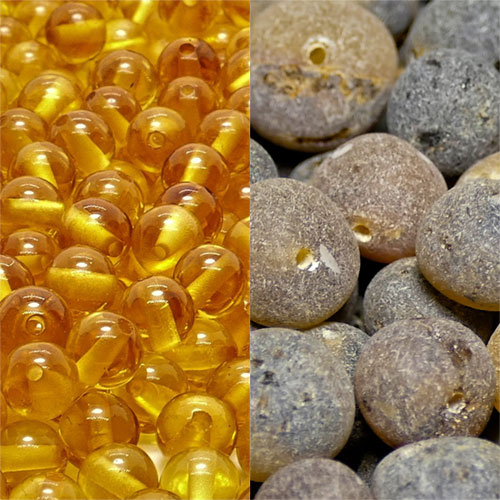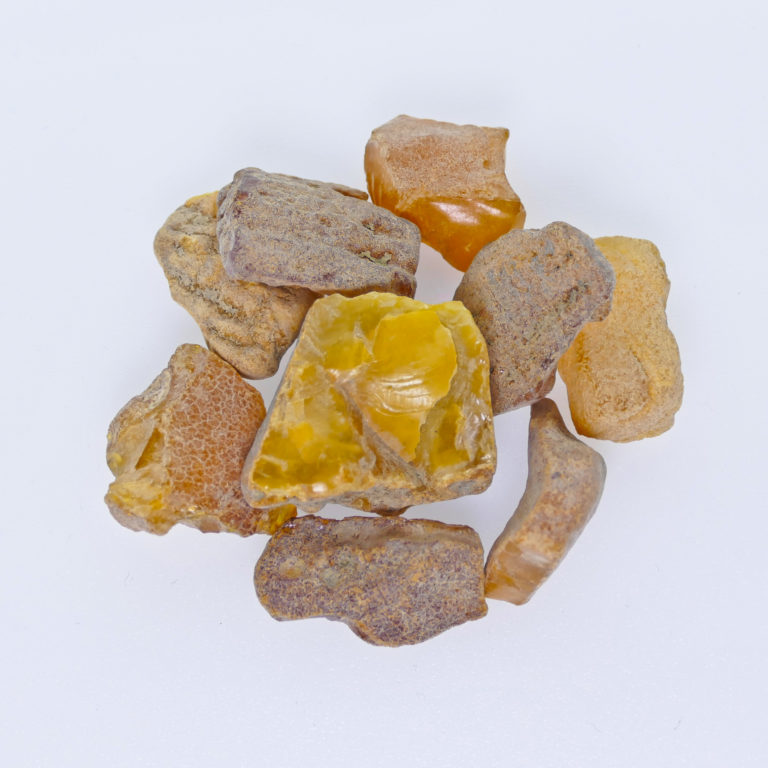Amber Teething Necklace
Genuine Baltic amber
Crafted with safety in mind
Knotted for extra safety
What is an amber teething necklace?
An amber teething necklace is a type of necklace worn by infants and young children during the teething process. These necklaces are typically made from Baltic amber beads, which are believed by some to release succinic acid when warmed by the skin. This acid is thought to have natural pain-relieving and anti-inflammatory properties, which may help soothe teething discomfort. However, it’s important to note that scientific evidence supporting these claims is limited, and there are safety concerns associated with using amber teething necklaces, including choking hazards and strangulation risks. Therefore, parents should exercise caution and consult with healthcare professionals before using amber teething necklaces for their children.

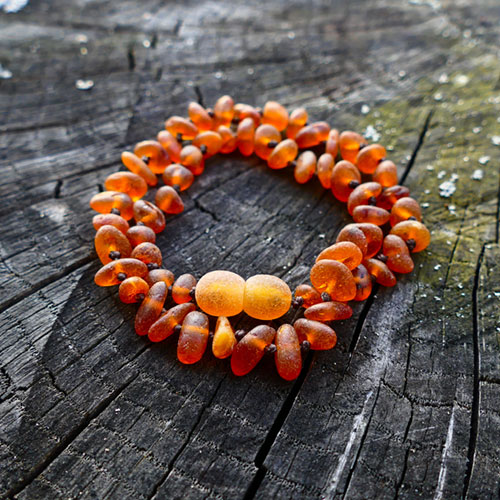
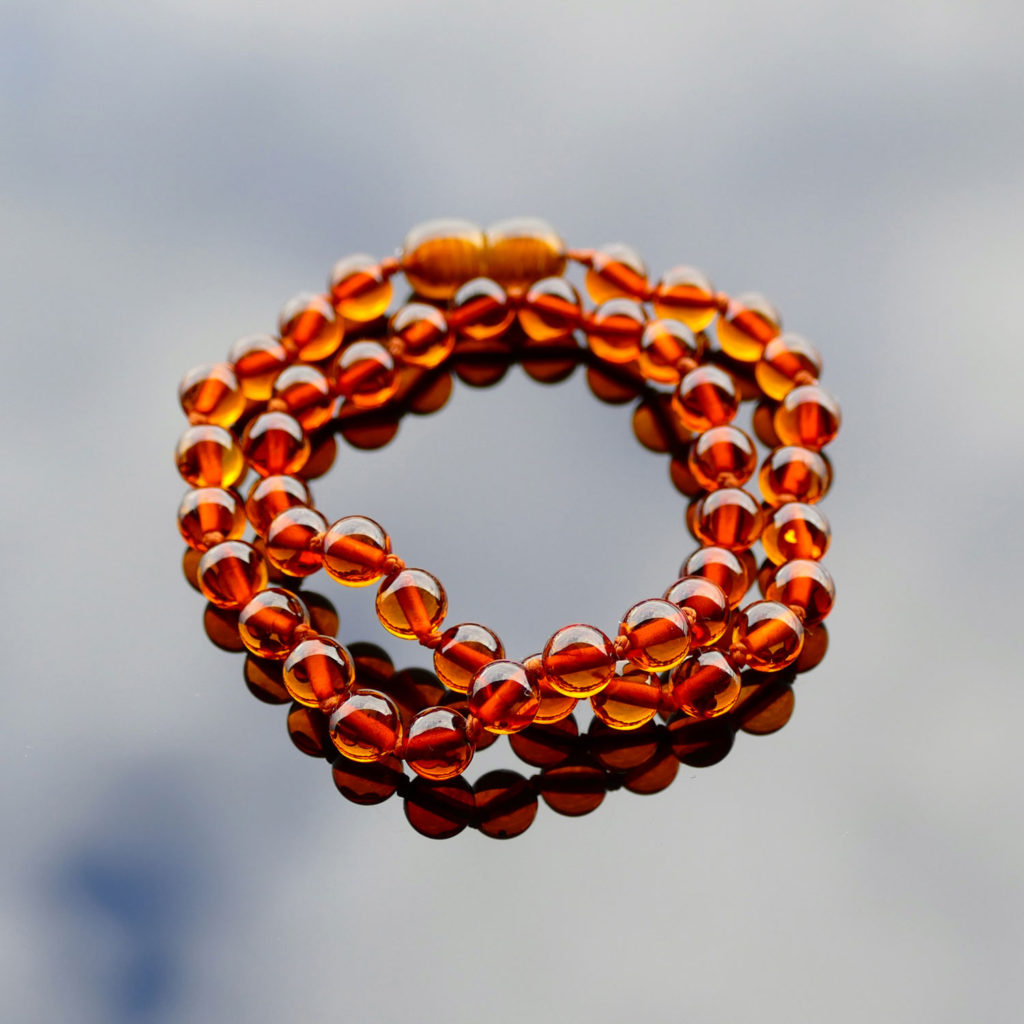
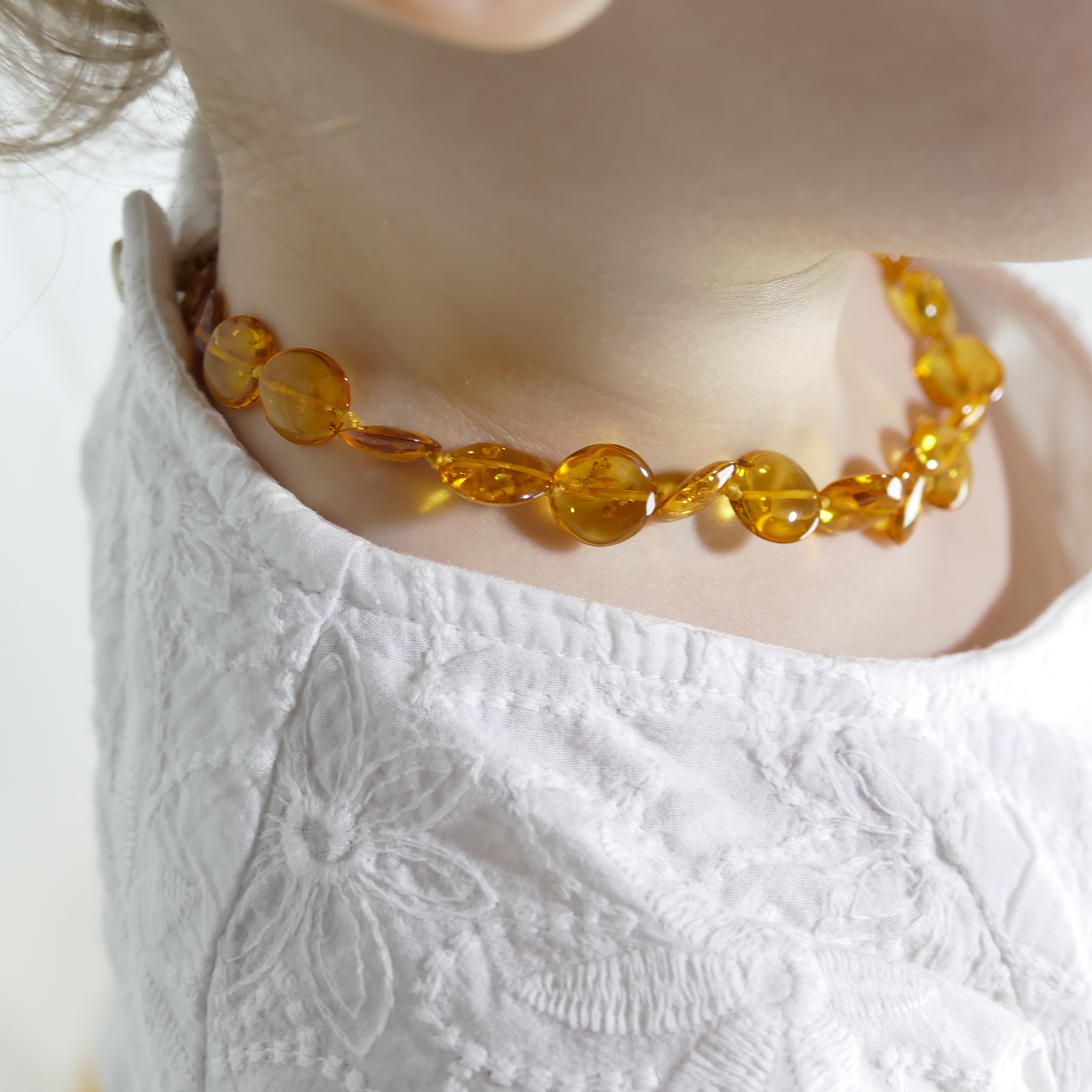
The special part of Baltic amber: succinic acid
The important thing that gives Baltic amber its healing powers is succinic acid. Succinic acid makes up 8% of Baltic amber.
Succinic acid is found in many vitamin pills, heart medicine, and creams for arthritis. Baltic amber is often used in Chinese medicines. Amber necklaces are sold at pharmacies in many European and Asian countries.
This is because succinic acid can:
- Reduce inflammation
- Boost the immune system
- Act as an antioxidant
- Calm and soothe
The special part of Baltic amber: succinic acid
The important thing that gives Baltic amber its healing powers is succinic acid. Succinic acid makes up 8% of Baltic amber.
Succinic acid is found in many vitamin pills, heart medicine, and creams for arthritis. Baltic amber is often used in Chinese medicines. Amber necklaces are sold at pharmacies in many European and Asian countries.
This is because succinic acid can:
- Reduce inflammation
- Boost the immune system
- Act as an antioxidant
- Calm and soothe
Where amber teething necklaces come from?
Nearly all amber teething necklaces are made from Baltic Amber, which is fossilized resin from the sap of conifer trees. The Baltic region is so well known for its amber deposits, they’re sometimes referred to as “Baltic gold.” Other forms of amber from other regions of the world also exist, though Baltic amber is known for having higher levels of succinic acid. You don’t want amber teething necklace from just anywhere. You want the amber to come from the Baltic region, because amber from that region has been has been tested to show higher rates of succinic acid than anywhere else. The difference is important and you should only buy Baltic amber teething beads made from amber collected in the true Baltic nations — Lithuania, Latvia and Estonia.
Baltic region
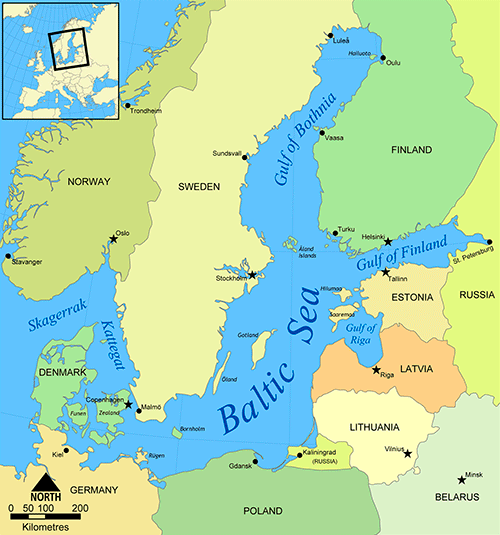
What is Baltic amber?
Baltic amber is a beautiful natural gemstone full of rich history. Since ancient times amber has been used to make all kinds of jewelry and household items. Amber jewelry has long been considered divine jewelry. They could only be worn by crowned persons. Fortunately, ordinary people can afford this stone today.
Amber has long been considered a symbol of happiness and health. The second name for this mineral is the sun stone. The stone has received this name due to his yellow color and beautiful transfusion in the sun.
What amber teething necklace is made of?
Classic amber teething necklace is made of genuine Baltic amber beads, thread (usually durable nylon or cotton) and non-toxic plastic clasp. Sometimes they are combined with the beautiful Rose Quartz gemstones, African Jade, Amazonite, Amethyst, Apatite, Aquamarine, Aventurine, Chakra, Crazy Agate, Green Lace Stone, Labradorite, Lapis Lazuli, Leopardskin, Jasper, Moonstone, Obsidian, Red Jasper, Rose Quartz, Smoky Quartz, Sunstone, Tiger Eye, Turquoise and Unakite.
Clasp of the necklaces can be screw clasps (twist closure) or pop clasps (breakaway clclosure). Baltic amber beads, which are strung together and individually knotted (double knotted beads to provide additional safety measures).
Amber beads are available in these colors: milk & butter, lemon, cinnamon, milk & honey, honey, golden, multicolored (semi-polished), cherry, rainbow (gradient color mix), cognac, mosaic (dalmatian style).
How to care for amber?
Don’t expose the amber to lotions, polishes and other residues that might coat the surface of the stones creating a barrier from the healing oil. Amber can be worn in the bath but not in the pool or hot tubs where chemicals are present and may harm the stones. If the necklace needs to be washed, only use warm water.
Are Amber Teething Necklaces Safe?
Amber teething necklaces are safe when worn correctly and supervised!
Safety first:
- Make sure the necklace isn’t too long.
- Parents should always supervise their infant child when wearing the necklace or bracelet
- Inspect the necklace for damage before putting it on
- Don’t let your baby sleep while wearing their necklace
- Make sure your infant is not placing the necklace in their mouth (necklaces, bracelets and anklets are made for wearing, not chewing!)
- Necklaces should be removed from the neck when the child sleeps or is unattended.
Each bead is knotted individually on the string (except stretch anklets). This ensures that in case the necklace breaks, they would only be able to free one bead. All the beads used in baby jewellery are smaller than a pea, so that they can be swallowed safely in the event that one should come free. The clasp at the back is free from all metals and allergens and is held together by knots ensuring if there was pressure placed on the necklace, the clasp would pop open.
Disclaimer
Parents should know that there is no scientific evidence which supports the claims that amber calms babies or helps the teething process flow easier. It is parents making these claims from experience and not every parent reports the same results. It is difficult to prove energetic healing and skeptics and scientist thinkers are unlikely to accept any benefits from Amber.
Want to give Baltic amber a try?
-
Tests to identify a true amber
Tests to Determine Amber Authenticity: Smell Tests Smell tests are effective because natural amber has a specific smell, which is difficult to obtain when producing falsifications. After heating real Baltic amber diffuses a specific delicate fragrance of pine-tree resins. Odours, diffused by falsifications: copal – smell of “sweet” resins, all others – smell of burnt…
-
Succinic acid
The main healing material of amber is succinic acid, which helps the body to fight against diseases. The mentioned material is present in the body of each living creature (human, animal, plant). About 200 mg of succinic acid is produced daily in human body, which is immediately consumed. It is a natural biostimulant, involved in…
-
Baltic amber colors
Baltic amber is usually yellow, bright yellowish. Its colour varies from white, yellow to brown, red. There is also green, blue, gray, even black amber. Baltic amber is usually yellow, bright yellowish. Its colour varies from white, yellow to brown, red. There is also green, blue, gray, even black amber. There are even more subtle…
-
Raw amber beads vs Polished amber beads
Raw Baltic amber is unprocessed, untreated amber. Raw is the true form of amber, Polished Baltic amber has been heated and pressure-treated to make it shine.
-
Benefits of Baltic amber
Health Benefits of Baltic amber
-
Why Baltic amber?
Top 5 reasons why Baltic amber is the best type of amber.

